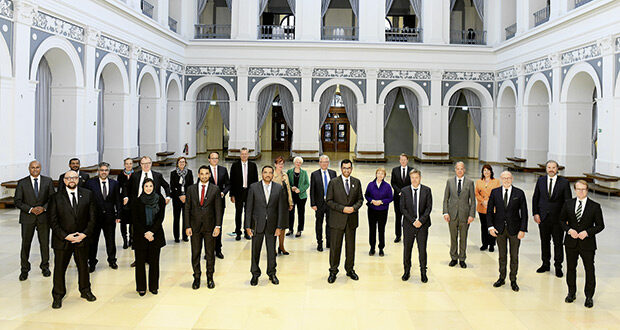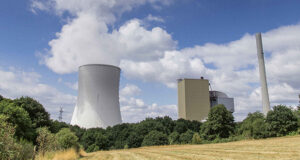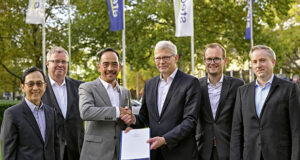Part of the demonstration deliveries of carbon-reduced ammonia agreed in spring between the Abu Dhabi National Oil Company (ADNOC) and various German energy and chemical companies has arrived in Hamburg; the tranche destined for STEAG GmbH, Essen/Germany, will follow timely. Representatives of ADNOC, STEAG and other companies as well as government representatives of the United Arab Emirates and the Federal Republic of Germany met in Hamburg to mark the occasion (Figure 1). The aim was not only to take stock, but also to discuss options for further cooperation. ADNOC and STEAG are currently negotiating an expansion of their cooperation.
“We are very pleased that the cooperation that began in the spring has developed so positively within such a short time,” says Andreas Reichel, CEO of STEAG. Especially in the face of the current crisis on the energy markets, this shows the declared will of the partners to quickly find solutions to secure the energy supply in the long term while not losing sight of the needs of climate protection.
For STEAG, ammonia offers various options for use: “On the one hand, ammonia is used in our hard coal-fired power plants in the denitrification of flue gases,” explains Ralf Schiele, who is responsible for the Market and Technology divisions in the STEAG management. In denitrification, ammonia is added to the flue gases, which then reacts with the nitrogen oxides contained in the flue gas to form water and nitrogen, thus purifying the flue gases.
“In addition, ammonia can also be a transport medium for hydrogen,“ Schiele continues. By means of the well-known Haber-Bosch process, ammonia can be produced synthetically from hydrogen and nitrogen. “Since the transport of ammonia is much easier than that of hydrogen, the material diversions via ammonia is a thoroughly sensible alternative,” says Schiele. The ammonia can then be split into the components nitrogen and hydrogen again at the customer’s production plant.
In view of the broad range of applications for ammonia, particularly in industry and energy generation, ADNOC and STEAG, together with other potential partners, are holding talks on intensifying the cooperation that was agreed during a delegation trip by Federal Minister of Economics and Climate Action Robert Habeck to the United Arab Emirates in March 2022. “It is now generally recognised that hydrogen is the key element for a successful energy transition. Consequently, STEAG is developing projects for green hydrogen production by means of electrolysis on an industrial scale at two locations,” says Reichel. However, in view of the foreseeably high demand for hydrogen, it is necessary to import hydrogen in addition to producing it domestically in order to meet the needs of customers in the long term.
Talks between the two partners are ongoing. “As soon as there is something concrete to report, we will of course make a statement,” said Reichel. At the same time, he thanked Federal Minister of Economics Habeck, whose delegation trip provided the initial impetus for the deepened cooperation that is now taking shape. (STEAG/Si.)


